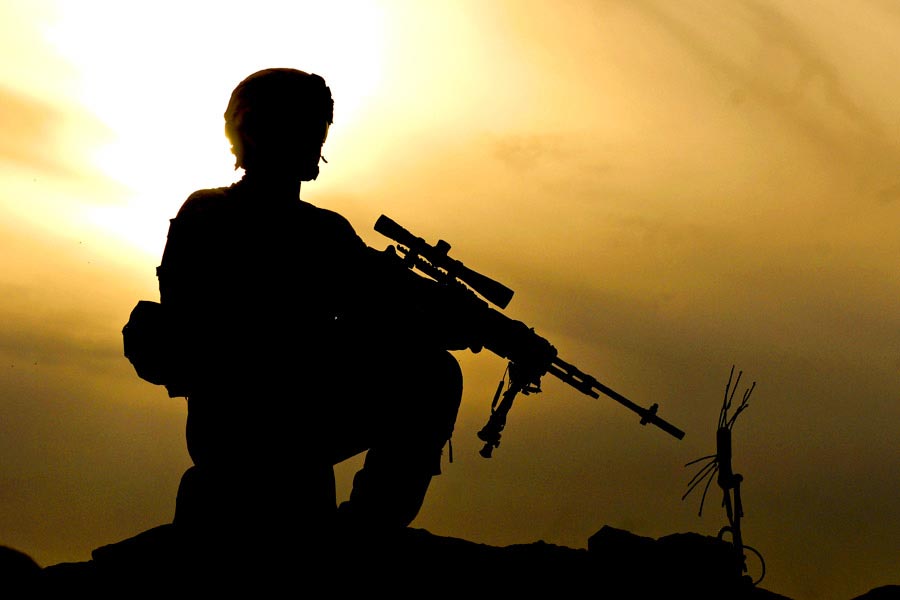Disclaimer: The views and opinions expressed in this article are strictly those of the author’s and do not necessarily reflect the official policy or position of SOFREP.com nor any of the writers and editors that work for it.
I had an interesting conversation the other day with someone I know and it broached the uncomfortable and difficult subject of whether Special Operations Forces should be writing books about their exploits.
It is uncomfortable because many Special Operations professionals live by the code of the “Quiet Professionals” which means that the A-Team guys, SEAL Platoons, Rangers, Raiders, CCTs, and Delta boys, who we now all lump together as “operators” should not seek self-promotion or recognition for the services that they provided for our country.
The conversation (and for the record, none of the other participants were Special Operations) got into the realm of OPSEC and putting the lives of active duty troops at risk. And in that aspect, we are in total agreement, never should anyone’s lives be risked over the publication of a book or magazine.
The government came down hard on Mark Bissonnette who penned the book, “No Easy Day” under the pen name of Mark Owen because he broke a confidentiality agreement that he signed off on concerning the raid that killed Osama bin Laden. As a result, Bissonnette was largely shunned by the Navy SEAL community.
The Navy granted Marcus Luttrell a leave of absence to write “Lone Survivor” which was later made into a film with Mark Wahlberg. Which kind of went against the grain of what the Navy did sending a memo to its Special Warfare members telling them not to advertise their exploits. But that is another subject.
But Luttrell’s story needed to be told. His survival was one of those hard to believe true stories. And the difficult decisions that our troops must make on a daily basis in the wars in Iraq, Afghanistan, Syria and countless other hot spots around the globe. Lt. Michael Murphy’s self-sacrifice for his teammates may have been a footnote in a history book somewhere, someday.
And unlike Bissonnette’s story, Robert O’Neill’s “The Operator” was submitted to the Pentagon for vetting, which they did. They edited out some parts of the book which were deemed to cross the line in revealing tactics and/or methods. But once again, if no confidentiality agreement was broken and the book didn’t threaten any security of active duty personnel, then it is a story that should be told.
Listening to a recent radio podcast with O’Neill, it was obvious that he isn’t bent on a mission of self-aggrandizement, but was telling his side of a story that was much bigger than anyone involved. Despite how he’s been portrayed in much of social media, his words were more of a celebration of those around him than himself.
The world was full of bin Laden stories since 2011 and he was the most wanted man in the world. And the story of the operation to get him was one that needed to be told. The American public needed to hear as much of the story as was allowed thru security protocols. Similar questions have been raised about other books such as “13 Hours” and “American Sniper” among others.
And there is this… there are no rules, other than confidentiality agreements for Special Operations veterans in the media other than the bushido that their services follow. Many Special Forces veterans of Vietnam wrote books after their careers were over.
Already have an account? Sign In
Two ways to continue to read this article.
Subscribe
$1.99
every 4 weeks
- Unlimited access to all articles
- Support independent journalism
- Ad-free reading experience
Subscribe Now
Recurring Monthly. Cancel Anytime.
Sometimes our own government sends mixed signals. While they went after Bissonnette and have actively frowned on others for going public, the government went out of their way to aid in the production of the film “Zero Dark Thirty” which depicted the mission to kill bin Laden.
And the Navy let filmmakers use active duty SEALs in the action film “Act of Valor” which was essentially a propaganda, recruiting vehicle to attract young men to enlist in Naval Special Warfare. Is this wrong? One can point at several WWII films, that were of the same vein that the Pentagon gave tremendous support to make.
The Navy was right in telling the active duty SEALs to limit their exposure in the media or on film. And that should go for all of the services as well. But once their days of serving are done, where is the line drawn that says this much is okay, but anything more is not?
The public has always had an insatiable appetite for tales of derring-do from her warriors. It provides an outlet for the veteran to tell their stories. We always hear and lament the loss of our WWII generation and so many stories that go untold. I point those who argue against this to the story of my own father. A battle he was involved with and one I didn’t know anything about until after he died.
As long as no rules of Operational Security (OPSEC) are broken nor any specific confidentiality agreements, then let the men and women tell their stories. Even the “Quiet Professionals” in Special Operations.
This is something that the individual services including USSOCOM should encourage a dialog among the troops who are both active and retired. Why? Because a lot of guys perspective will change once they are retired.
Fighting among each other especially on social media doesn’t do the services any favors. But many Special Operations troops have a story to tell. And they should be told
Photos Courtesy DOD
This article was originally published on SpecialOperations.com and written by STEVE BALESTRIERI










COMMENTS